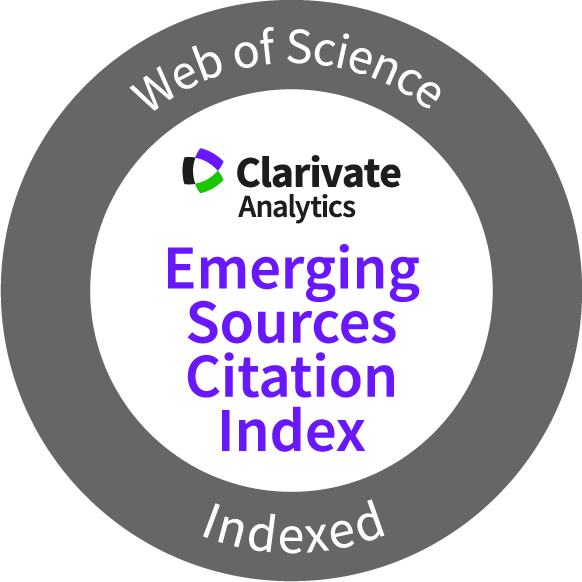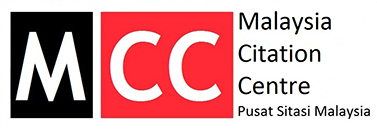Assessment of Gut Microbiome Variations in the Mother and Twin Infant of Captive White-handed Gibbons (Hylobates lar) Reveals the Presence of Beneficial and Pathogenic Bacteria
Keywords:
Hylobatidae, next-generation sequencing, small ape, twin, ungka, white-handed gibbonAbstract
The white-handed gibbon (Hylobates lar) is one of the three Hylobatidae species found in the Peninsular Malaysia region. Studies on primate gut microbiota have yet to be conducted in Malaysian Hylobatidae, but previous studies have covered Cercopithecidae. Knowledge of the gut microbiota of endangered captive Malaysian Hylobatidae primates is important for health assessment and conservation management. Thus, the main objective of this study was to determine the gut microbiota profile of captive white-handed gibbons using the metabarcode 16S rRNA gene. Two H. lar fecal samples collected from the mother and twin infant at Zoo Melaka were used for DNA extraction. Next-generation sequencing (NGS) of the 16S rRNA gene was performed. The NGS data were analyzed on the basis of amplicon sequence variation. The gut microbiota of H. lar was dominated by Firmicutes and Bacteroidota because of their important roles in fermentation and nutrient assimilation from plant-based food sources. Predominance of Prevotella in the gut microbiota of H. lar indicates that the captivity condition causes the gut microbiota of gibbons to resemble that of humans. Treponema, a pathogenic bacterium, was also detected in the mother and twin infant. Variation in the bacterial community profile between the mother and the infant indicated differences in dietary adaptations and physiological state. This study provides an overview of gibbon health levels through gut microbiome screening and can be used when considering Malaysian primate health welfare and captive management.
Downloads
Metrics
References
Abdullah-Fauzi, N.A.F., Karuppannan, K.V., Mohd-Radzi, N.H.S., Gani, M., Mohd-Ridwan, A.R., Othman, N., Haris, H., Sariyati, N.H., Aifat, N.R., Abdul-Latiff. M.A.B., Abdul-Razak, M.F.A. & Md-Zain, B.M. 2022. Determining the dietary preferences of wild Asian elephants (Elephas maximus) in Taman Negara National Park, Malaysia based on sex and age using trnL DNA metabarcoding analysis. Zoological Studies, 61: 60.
Aifat, N.R. & Md-Zain, B.M. 2021. Genetic identification of white-handed gibbons (Hylobates lar) in captivity. Journal of Sustainability Science and Management, 16(4): 316-326. DOI: https://doi.org/10.46754/jssm.2021.06.023
Aifat, N.R., Yaakop, S. & Md-Zain, B.M. 2016. Optimization of partial Cyt b gene sequence from selected ancient Presbytis museum skin specimens. Malaysian Applied Biology, 45(1): 93-96.
Amato, K.R., Yeoman, C.J., Kent, A., Righini, N., Carbonero, F., Estrada, A., Rex Gaskins, H., Stumpf, R.M., Yildirim, S., Torralba, M., Gillis, M., Wilson, B.A., Nelson, K.E., White, B.A. & Leigh, S.R. 2013. Habitat degradation impacts black howler monkey (Alouatta pigra) gastrointestinal microbiomes. The ISME Journal, 7: 1344-1353. DOI: https://doi.org/10.1038/ismej.2013.16
Ames, N.J., Ranucci, A., Moriyama, B. & Wallen, G.R. 2017. The human microbiome and understanding the 16s rrna gene in translational nursing science. Nursing Research, 66(2): 184-197. DOI: https://doi.org/10.1097/NNR.0000000000000212
Angelakis, E., Bachar, D., Yasir, M., Musso, D., Djossou, F., Gaborit, B., Brah, S., Diallo, A., Ndombe, G.M., Mediannikov, O., Robert, C., Azhar, E.I., Bibi, F., Nsana, N.S., Parra, H.-J., Akiana, J., Sokhna, C., Davoust, B., Dutour, A. & Raoult, D. 2019. Treponema species enrich the gut microbiota of traditional rural populations but are absent from urban individuals. New Microbes and New Infections, 27: 14-21. DOI: https://doi.org/10.1016/j.nmni.2018.10.009
Bailey, M.T. & Coe, C.L. 1999. Maternal separation disrupts the integrity of the intestinal microflora in infant rhesus monkeys. Developmental psychobiology, 35(2): 146-155. DOI: https://doi.org/10.1002/(SICI)1098-2302(199909)35:2<146::AID-DEV7>3.0.CO;2-G
Bailey, M.T., Lubach, G.R. & Coe, C.L. 2004. Prenatal stress alters bacterial colonization of the gut in infant monkeys. Journal of Pediatric Gastroenterology and Nutrition, 38(4): 414-421. DOI: https://doi.org/10.1097/00005176-200404000-00009
Barelli, C., Albanese, D., Donati, C., Pindo, M., Dallago, C., Rovero, F., Cavalieri, D., Tuohy, K.M., Hauffe, H.C. & De Filippo, C. 2015. Habitat fragmentation is associated to gut microbiota diversity of an endangered primate: implications for conservation. Scientific Reports, 5: 14862. DOI: https://doi.org/10.1038/srep14862
Borbón-García, A., Reyes, A., Vives-Flórez, M. & Caballero, S. 2017. Captivity shapes the gut microbiota of Andean Bears: Insights into health surveillance. Frontiers in Microbiology, 8: 1316. DOI: https://doi.org/10.3389/fmicb.2017.01316
Callahan, B.J., McMurdie, P.J., Rosen, M.J., Han, A.W., Johnson, A.J.A. & Holmes, S.P. 2016. DADA2: High-resolution sample inference from Illumina amplicon data. Nature Methods, 13(7): 581-583. DOI: https://doi.org/10.1038/nmeth.3869
Campbell, T.P., Sun, X., Patel, V.H., Sanz, C., Morgan, D. & Dantas, G. 2020. The microbiome and resistome of chimpanzees, gorillas, and humans across host lifestyle and geography. The ISME Journal, 14(6): 1584-1599. DOI: https://doi.org/10.1038/s41396-020-0634-2
Clayton, J.B., Vangay, P., Huang, H., Ward, T., Hillmann, B.M., Al-Ghalith, G.A., Travis, D.A., Long, H.T., Tuan, B. Van, Minh, V. Van, Cabana, F., Nadler, T., Toddes, B., Murphy, T., Glander, K.E., Johnson, T.J. & Knights, D. 2016. Captivity humanizes the primate microbiome. Proceedings of the National Academy of Sciences, 113(37): 10376-10381. DOI: https://doi.org/10.1073/pnas.1521835113
Corrêa-Oliveira, R., Fachi, J.L., Vieira, A., Sato, F.T. & Vinolo, M.A.R. 2016. Regulation of immune cell function by short-chain fatty acids. Clinical & Translational Immunology, 5(4): e73. DOI: https://doi.org/10.1038/cti.2016.17
De Filippis, F., Pasolli, E., Tett, A., Tarallo, S., Naccarati, A., De Angelis, M., Neviani, E., Cocolin, L., Gobbetti, M., Segata, N., & Ercolini, D. 2019. Distinct genetic and functional traits of human intestinal Prevotella copri strains are associated with different habitual diets. Cell host & microbe, 25(3): 444-453.e3. DOI: https://doi.org/10.1016/j.chom.2019.01.004
Flint, H.J. 2004. Polysaccharide breakdown by anaerobic microorganisms inhabiting the mammalian gut. Advances in Applied Microbiology, 56: 89-120. DOI: https://doi.org/10.1016/S0065-2164(04)56003-3
Gani, M., Rovie-Ryan, J.J., Sitam, F.T., Kulaimi, N.A.M., Zheng, C.C., Atiqah, A.N., Rahim, N.M.A. & Mohammed, A.A. 2021. Taxonomic and genetic assessment of captive White-Handed Gibbons (Hylobates lar) in Peninsular Malaysia with implications towards conservation translocation and reintroduction programmes. ZooKeys, 1076: 25-41. DOI: https://doi.org/10.3897/zookeys.1076.73262
Ghosh, A., Thakur, M., Sharma, L.K. & Chandra, K. 2021. Linking gut microbiome with the feeding behavior of the Arunachal macaque (Macaca munzala). Scientific Reports, 11(1): 21926. DOI: https://doi.org/10.1038/s41598-021-01316-0
Gomez, A., Petrzelkova, K.J., Burns, M.B., Yeoman, C.J., Amato, K.R., Vlckova, K., Modry, D., Todd, A., Jost Robinson, C.A., Remis, M.J., Torralba, M.G., Morton, E., Umaña, J.D., Carbonero, F., Gaskins, H.R., Nelson, K.E., Wilson, B.A., Stumpf, R.M., White, B.A., Leigh, S.R. & Blekhman, R. 2016. Gut microbiome of coexisting BaAka Pygmies and Bantu reflects gradients of traditional subsistence patterns. Cell Reports, 14(9): 2142-2153. DOI: https://doi.org/10.1016/j.celrep.2016.02.013
Greenblum, S., Carr, R., & Borenstein, E. 2015. Extensive strain-level copy-number variation across human gut microbiome species. Cell, 160(4): 583-594. DOI: https://doi.org/10.1016/j.cell.2014.12.038
Hale, V.L., Tan, C.L., Niu, K., Yang, Y., Knight, R., Zhang, Q., Cui, D. & Amato, K.R. 2018. Diet versus phylogeny: A comparison of gut microbiota in captive colobine monkey species. Microbial Ecology, 75(2): 515-527. DOI: https://doi.org/10.1007/s00248-017-1041-8
Hayakawa, T., Nathan, S.K.S.S., Stark, D.J., Saldivar, D.A.R., Sipangkui, R., Goossens, B., Tuuga, A., Clauss, M., Sawada, A., Fukuda, S., Imai, H. & Matsuda, I. 2018. First report of foregut microbial community in proboscis monkeys: are diverse forests a reservoir for diverse microbiomes?. Environmental Microbiology Reports, 10(6): 655-662. DOI: https://doi.org/10.1111/1758-2229.12677
Hooper, L. 2004. Bacterial contributions to mammalian gut development. Trends in Microbiology, 12(3): 129-134. DOI: https://doi.org/10.1016/j.tim.2004.01.001
Huan, Z., Yao, Y., Yu, J., Chen, H., Li, M., Yang, C., Zhao, B., Ni, Q., Zhang, M., Xie, M. & Xu, H. 2020. Differences in the gut microbiota between Cercopithecinae and Colobinae in captivity. Journal of Microbiolog, 58(5): 367-376. DOI: https://doi.org/10.1007/s12275-020-9493-9
Jia, T., Zhao, S., Knott, K., Li, X., Liu, Y., Li, Y., Chen, Y., Yang, M., Lu, Y., Wu, J. & Zhang, C. 2018. The gastrointestinal tract microbiota of northern white-cheeked gibbons (Nomascus leucogenys) varies with age and captive condition. Scientific Reports, 8: 3214. DOI: https://doi.org/10.1038/s41598-018-21117-2
Khairulmunir, M., Gani, M., Karuppannan, K.V., Mohd-Ridwan, A.R. & Md-Zain, B.M. 2023. High-throughput DNA metabarcoding for determining the gut microbiome of captive critically endangered Malayan tiger (Panthera tigris jacksoni) during fasting. Biodiversity Data Journal, 11: e104757. DOI: https://doi.org/10.3897/BDJ.11.e104757
Laforest-Lapointe, I. & Arrieta, M.-C. 2017. Patterns of early-life gut microbial colonization during human immune development: An ecological perspective. Frontiers in Immunology, 8: 788. DOI: https://doi.org/10.3389/fimmu.2017.00788
Lan, L., You, Y., Hong, Q., Liu, Q., Xu, C., Chen, W., Zhu, Y., Du, X. & Fan, P. 2022. The gut microbiota of gibbons across host genus and captive site in China. American Journal of Primatology, 84(3): e23360. DOI: https://doi.org/10.1002/ajp.23360
Ley, R.E., Hamady, M., Lozupone, C., Turnbaugh, P.J., Ramey, R.R., Bircher, J.S., Schlegel, M.L., Tucker, T.A., Schrenzel, M.D., Knight, R. & Gordon, J.I. 2008. Evolution of mammals and their gut microbes. Science, 320(5883): 1647-1651. DOI: https://doi.org/10.1126/science.1155725
Li, Y., Bi, Y., Yang, L. & Jin, K. 2022. Comparative study on intestinal microbiome composition and function in young and adult Hainan gibbons (Nomascus hainanus). PeerJ, 10: e13527. DOI: https://doi.org/10.7717/peerj.13527
Ma, T., Villot, C., Renaud, D., Skidmore, A., Chevaux, E., Steele, M. & Guan, L.L. 2020. Linking perturbations to temporal changes in diversity, stability, and compositions of neonatal calf gut microbiota: prediction of diarrhea. The ISME Journal, 14(9): 2223-2235. DOI: https://doi.org/10.1038/s41396-020-0678-3
McMurdie, P. & Holmes, S. 2013. Phyloseq: An R package for reproducible interactive analysis and graphics of microbiome census data. PLOS One, 8(4): e61217. DOI: https://doi.org/10.1371/journal.pone.0061217
Martin, M. 2011. Cutadapt removes adapter sequences from high-throughput sequencing reads. EMBnet.journal, 17(1): 10-12. DOI: https://doi.org/10.14806/ej.17.1.200
Md-Zain, B.M., Abdul-Latiff, M.A.B., Mohd-Ridwan, A.R. & Faudzir, N.M. 2022. Primat Semenanjung Malaysia. Jabatan Perlindungan Hidupan Liar dan Taman Negara (PERHILITAN), Kuala Lumpur.
Md-Zain, B.M., Lee, S.J., Lakim, M., Ampeng, A. & Mahani, M.C. 2010. Phylogenetic position of Tarsius bancanus based on partial Cytochrome b DNA sequences. Journal of Biological Sciences, 10(4): 348-354. DOI: https://doi.org/10.3923/jbs.2010.348.354
Moeller, A.H., Li, Y., Mpoudi Ngole, E., Ahuka-Mundeke, S., Lonsdorf, E. V., Pusey, A.E., Peeters, M., Hahn, B.H. & Ochman, H. 2014. Rapid changes in the gut microbiome during human evolution. Proceedings of the National Academy of Sciences of the United States of America, 111(46): 16431-16435. DOI: https://doi.org/10.1073/pnas.1419136111
Mohd-Radzi, N.H.S., Karuppannan, K.V., Abdullah-Fauzi, N.A.F., Mohd-Ridwan, A.R., Othman, N., Abdul-Latiff, M.A.B., Gani M, Abdul-Razak, M.F.A. & Md-Zain, B.M. 2022. Determining the diet of wild Asian elephants (Elephas maximus) at human-elephant conflict areas in Peninsular Malaysia using DNA metabarcoding. Biodiversity Data Journal, 10: e89752. DOI: https://doi.org/10.3897/BDJ.10.e89752
Mohd-Yusof, N.S., Abdul-Latiff, M.A.B., Mohd-Ridwan, A.R., Badrulisham, A.S., Othman, N., Yaakop, S., Md-Nor, S. & Md-Zain, B.M. 2022. First report on metabarcoding analysis of gut microbiome in island flying fox (Pteropus hypomelanus) in island populations of Malaysia. Biodiversity Data Journal, 10: e69631. DOI: https://doi.org/10.3897/BDJ.10.e69631
Mulup, A. 2021. Ungka lahir anak kembar di Zoo Melaka, kes pertama di Asia. [WWW Document]. Utusan Malaysia. URL https://www.utusan.com.my/berita/2021/09/ungka-lahir-anak-kembar-di-zoo-melaka-kes-pertama-di-asia/#google_vignette (accessed 12.1.2024).
Nordhoff, M., Taras, D., Macha, M., Tedin, K., Busse, H.J. & Wieler, L.H. 2005. Treponema berlinense sp. nov. and Treponema porcinum sp. nov., novel spirochaetes isolated from porcine faeces. International Journal of Systematic and Evolutionary Microbiology, 55(4): 1675-1680. DOI: https://doi.org/10.1099/ijs.0.63388-0
Osman, N.A., Abdul-Latiff, M.A.B., Mohd-Ridwan, A.R., Yaakop, S., Nor, S.M. & Md-Zain, B.M. 2020. Diet composition of the wild stump-tailed macaque (Macaca arctoides) in Perlis State Park, Peninsular Malaysia, using a chloroplast tRNL DNA metabarcoding approach: A preliminary study. Animals, 10(12): 2215. DOI: https://doi.org/10.3390/ani10122215
Osman, N.A., Abdul-Latiff, M.A.B., Mohd-Ridwan, A.R., Yaakop, S., Karuppannan, K.V. & Md-Zain, B.M. 2022. Metabarcoding data analysis revealed the plant dietary variation of long-tailed macaque Macaca fascicularis (Cercopithecidae, Cercopithecinae) living in disturbed habitats in Peninsular Malaysia. Biodiversity Data Journal, 10: e89617. DOI: https://doi.org/10.3897/BDJ.10.e89617
Petrullo, L., Baniel, A., Jorgensen, M.J., Sams, S., Snyder-Mackler, N. & Lu, A. 2022. The early life microbiota mediates maternal effects on offspring growth in a nonhuman primate. IScience, 25(3): 103948. DOI: https://doi.org/10.1016/j.isci.2022.103948
Precup, G. & Vodnar, D.C. 2019. Gut Prevotella as a possible biomarker of diet and its eubiotic versus dysbiotic roles: a comprehensive literature review. British Journal of Nutrition, 122(2): 131-140. DOI: https://doi.org/10.1017/S0007114519000680
R Core Team. 2016. R: A Language and Environment for Statistical Computing. R Foundation for Statistical Computing, Vienna, Austria. https://www.r-project.org/
Reese, A.T., Phillips, S.R., Owens, L.A., Venable, E.M., Langergraber, K.E., Machanda, Z.P., Mitani, J.C., Muller, M.N., Watts, D.P., Wrangham, R.W., Goldberg, T.L., Thompson, M.E. & Carmody, R.N. 2021. Age patterning in wild chimpanzee gut microbiota diversity reveals differences from humans in early life. Current Biology, 31(3): 613-620.e3. DOI: https://doi.org/10.1016/j.cub.2020.10.075
Rendina, D.N., Lubach, G.R., Phillips, G.J., Lyte, M. & Coe, C.L. 2019. Maternal and breast milk influences on the infant gut microbiome, enteric health and growth outcomes of rhesus monkeys. Journal of Pediatric Gastroenterology & Nutrition, 69(3): 363-369. DOI: https://doi.org/10.1097/MPG.0000000000002394
Sariyati, N.H., Abdul-Latiff, M.A.B., Aifat, N.R., Mohd-Ridwan, A.R., Osman, N.A., Karuppannan, K.V., Chan, E. & Md-Zain, B.M. 2024. Molecular phylogeny confirms the subspecies delineation of the Malayan Siamang (Symphalangus syndactylus continentis) and the Sumatran Siamang (Symphalangus syndactylus syndactylus) based on the hypervariable region of mitochondrial DNA. Biodiversity Data Journal 12: e120314. DOI: https://doi.org/10.3897/BDJ.12.e120314
Scott, K. P., Antoine, J. M., Midtvedt, T., & Van Hemert, S. 2015. Manipulating the gut microbiota to maintain health and treat disease. Microbial Ecology in Health and Disease, 26: 25877. DOI: https://doi.org/10.3402/mehd.v26.25877
Simmen, B., Hladik, A. & Ramasiarisoa, P. 2003. Food intake and dietary overlap in native Lemur catta and Propithecus verreauxi and introduced Eulemur fulvus at Berenty, Southern Madagascar. International Journal of Primatology, 24(5): 949-968. DOI: https://doi.org/10.1023/A:1026366309980
Stevenson, P.R., Quinones, M.J. & Ahumada, J.A. 2000. Influence of fruit availability on ecological overlap among four neotropical primates at Tinigua National Park, Colombia1. Biotropica, 32(3): 533-544. DOI: https://doi.org/10.1111/j.1744-7429.2000.tb00499.x
Stumpf, R.M., Gomez, A., Amato, K.R., Yeoman, C.J., Polk, J.D., Wilson, B.A., Nelson, K.E., White, B.A. & Leigh, S.R. 2016. Microbiomes, metagenomics, and primate conservation: New strategies, tools, and applications. Biological Conservation, 199: 56-66. DOI: https://doi.org/10.1016/j.biocon.2016.03.035
Sun, L., Zhang, H., Cao, Y., Wang, C., Zhao, C., Wang, H., Cui, G., Wang, M., Pan, Y., Shi, Y. & Nie, Y. 2019. Fluoxetine ameliorates dysbiosis in a depression model induced by chronic unpredicted mild stress in mice. International Journal of Medical Sciences, 16(9): 1260-1270. DOI: https://doi.org/10.7150/ijms.37322
Thinh, V.N., Mootnick, A.R., Geissmann, T., Li, M., Ziegler, T., Agil, M., Moisson, P., Nadler, T., Walter, L. & Roos, C. 2010a. Mitochondrial evidence for multiple radiations in the evolutionary history of small apes. BMC Evolutionary Biology, 10(1): 74. DOI: https://doi.org/10.1186/1471-2148-10-74
Thinh, V.N., Rawson, B., Hallam, C., Kenyon, M., Nadler, T., Walter, L. & Roos, C. 2010b. Phylogeny and distribution of crested gibbons (genus Nomascus) based on mitochondrial cytochrome b gene sequence data. American Journal of Primatology, 72(12): 1047-1054. DOI: https://doi.org/10.1002/ajp.20861
Vojinovic, D., Radjabzadeh, D., Kurilshikov, A., Amin, N., Wijmenga, C., Franke, L., Ikram, M.A., Uitterlinden, A.G., Zhernakova, A., Fu, J., Kraaij, R. & van Duijn, C.M. 2019. Relationship between gut microbiota and circulating metabolites in population-based cohorts. Nature Communications, 10(1): 5813. DOI: https://doi.org/10.1038/s41467-019-13721-1
Wang, W.L., Xu, S. Y., Ren, Z.G., Tao, L., Jiang, J.W. & Zheng, S.S. 2015. Application of metagenomics in the human gut microbiome. World Journal of Gastroenterology, 21(3): 803-814. DOI: https://doi.org/10.3748/wjg.v21.i3.803
Weng, F.C.H., Yang, Y.J. & Wang, D. 2016. Functional analysis for gut microbes of the brown tree frog (Polypedates megacephalus) in artificial hibernation. BMC Genomics, 17(Suppl 13): 1024. DOI: https://doi.org/10.1186/s12864-016-3318-6
Wiebler, J.M., Kohl, K.D., Lee, R.E. & Costanzo, J.P. 2018. Urea hydrolysis by gut bacteria in a hibernating frog: evidence for urea-nitrogen recycling in Amphibia. Proceedings of the Royal Society of Biological Sciences, 285(1878): 20180241. DOI: https://doi.org/10.1098/rspb.2018.0241
Wu, Q., Wang, X., Ding, Y., Hu, Y., Nie, Y., Wei, W., Ma, S., Yan, L., Zhu, L. & Wei, F. 2017. Seasonal variation in nutrient utilization shapes gut microbiome structure and function in wild giant pandas. Proceedings of the Royal Society of Biological Sciences, 284(1862): 20170955. DOI: https://doi.org/10.1098/rspb.2017.0955
Yaakob, N.F. 2021. Ungka Tangan Putih lahir kembar dua, cipta sejarah di Asia. [WWW Document]. Sinar Harian. URL https://www.sinarharian.com.my/article/163662/BERITA/Semasa/Ungka-Tangan-Putih-lahir-kembar-dua-cipta-sejarah-di-Asia (accessed 12.01.2024).
Yin, X., Ji, S., Duan, C., Tian, P., Ju, S., Yan, H., Zhang, Y. & Liu, Y. 2023. The succession of fecal bacterial community and its correlation with the changes of serum immune indicators in lambs from birth to 4 months. Journal of Integrative Agriculture, 22(2): 537-550. DOI: https://doi.org/10.1016/j.jia.2022.08.055
Ying, C., Siao, Y.S., Chen, W.J., Chen, Y.T., Chen, S.L., Chen, Y.L. & Hsu, J.T. 2022. Host species and habitats shape the bacterial community of gut microbiota of three non-human primates: Siamangs, white-handed gibbons, and Bornean orangutans. Frontiers in Microbiology, 13: 920190. DOI: https://doi.org/10.3389/fmicb.2022.920190
Zhang, Z., Xu, D., Wang, L., Hao, J., Wang, J., Zhou, X., Wang, W., Qiu, Q., Huang, X., Zhou, J., Long, R., Zhao, F. & Shi, P. 2016. Convergent Evolution of Rumen Microbiomes in High-Altitude Mammals. Current Biology, 26(14): 1873-1879. DOI: https://doi.org/10.1016/j.cub.2016.05.012
Zheng, P., Wu, J., Zhang, H., Perry, S.W., Yin, B., Tan, X., Chai, T., Liang, W., Huang, Y., Li, Y., Duan, J., Wong, M.-L., Licinio, J. & Xie, P. 2021. The gut microbiome modulates gut-brain axis glycerophospholipid metabolism in a region-specific manner in a nonhuman primate model of depression. Molecular Psychiatry, 26(6): 2380-2392. DOI: https://doi.org/10.1038/s41380-020-0744-2
Zhu, L., Wu, Q., Deng, C., Zhang, M., Zhang, C., Chen, H., Lu, G. & Wei, F. 2018. Adaptive evolution to a high purine and fat diet of carnivorans revealed by gut microbiomes and host genomes. Environmental Microbiology, 20(5): 1711-1722. DOI: https://doi.org/10.1111/1462-2920.14096
Published
How to Cite
Issue
Section
Any reproduction of figures, tables and illustrations must obtain written permission from the Chief Editor (wicki@ukm.edu.my). No part of the journal may be reproduced without the editor’s permission




















